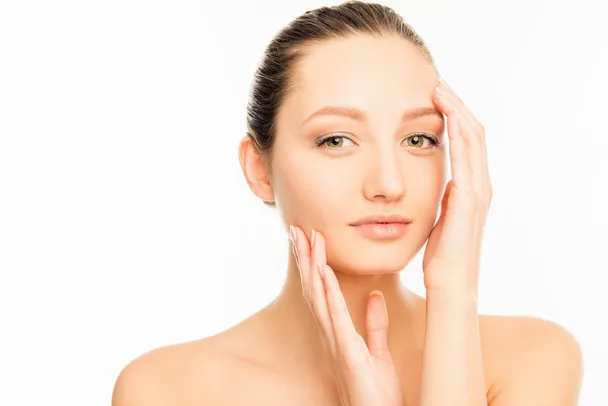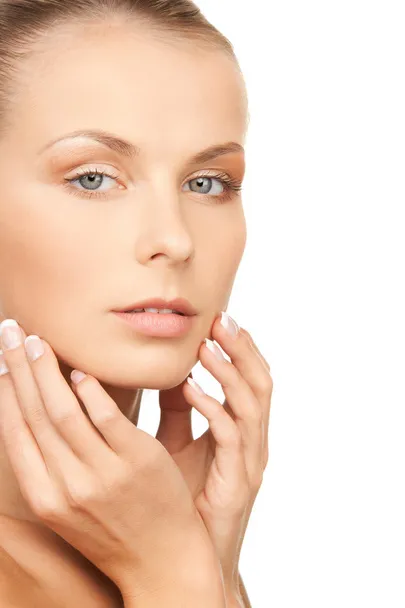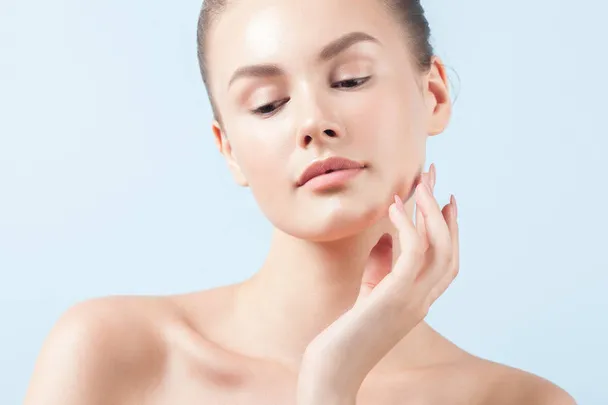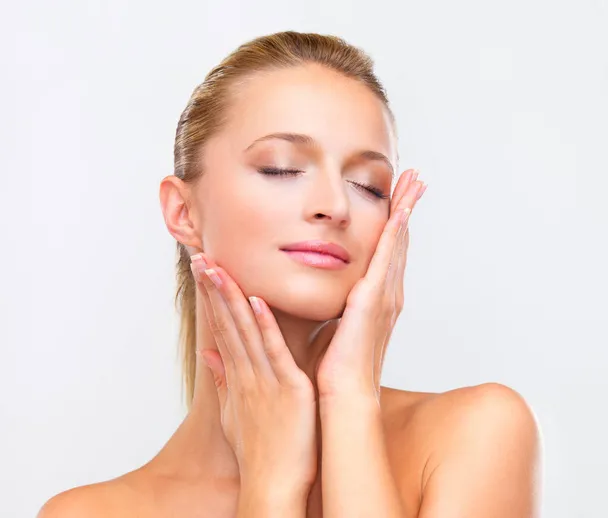The Role of Diet and Nutrition in Skin Health
Skin health is not solely determined by external factors such as skincare products and treatments; rather, it is deeply influenced by internal factors, particularly diet and nutrition. The foods we consume play a significant role in the overall health and appearance of our skin. This article explores the crucial relationship between diet, nutrition, and skin health, highlighting the impact of various nutrients on maintaining vibrant, youthful skin.
The Link Between Diet and Skin Health:
The connection between diet and skin health is profound, as our skin serves as a mirror reflecting our internal well-being. The nutrients we ingest through our diet play a pivotal role in shaping the appearance and functionality of our skin. It’s not just about what we apply topically; it’s about what we consume internally that truly nourishes our skin.
A balanced diet comprising a diverse range of nutrients is fundamental for fostering skin health. Essential vitamins, minerals, antioxidants, and fatty acids work synergistically to support various aspects of skin function and appearance. Take, for example, vitamin C, a powerhouse nutrient renowned for its role in collagen synthesis. Collagen, the most abundant protein in the skin, provides structural support, elasticity, and resilience. By facilitating collagen production, vitamin C helps maintain skin firmness, suppleness, and youthfulness, ultimately warding off the dreaded signs of sagging and aging.
Similarly, the antioxidant prowess of vitamin E is indispensable in safeguarding our skin against oxidative stress induced by free radicals. Free radicals, unstable molecules generated by factors like UV radiation, pollution, and stress, wreak havoc on skin cells, leading to premature aging, pigmentation, and inflammation. Vitamin E swoops in as a potent scavenger, neutralizing these harmful free radicals and protecting the skin from oxidative damage. In doing so, it helps preserve the skin’s integrity, radiance, and overall health.
But it’s not just about vitamins; minerals also play a crucial role in skin health. Zinc, for instance, is essential for regulating sebum production, controlling acne, and supporting wound healing. Its anti-inflammatory properties further soothe irritated skin and promote a clear, balanced complexion. Moreover, omega-3 fatty acids, abundant in fatty fish, flaxseeds, and walnuts, contribute to the maintenance of the skin’s lipid barrier. This protective barrier prevents moisture loss, strengthens the skin’s natural defenses, and combats inflammation, leaving the skin soft, hydrated, and resilient.
In essence, the nutrients we consume through our diet act as the building blocks of healthy, radiant skin. By embracing a diet rich in vitamins, minerals, antioxidants, and essential fatty acids, we empower our skin to thrive from within. So, next time you reach for a snack or plan your meals, remember that you’re not just feeding your body; you’re nourishing your skin, the outer reflection of your inner vitality and well-being.
The Role of Hydration:
Hydration is not just a suggestion but a fundamental necessity for maintaining healthy, radiant skin. While consuming nutrient-rich foods is essential, ensuring adequate hydration is equally paramount. Water, often overlooked in its simplicity, plays a crucial role in preserving the skin’s moisture levels, thus preventing dryness and promoting a plump, supple complexion.
Picture your skin as a delicate flower; just as flowers require water to flourish, so does your skin. Dehydration, akin to depriving a flower of water, can lead to a lackluster appearance and compromise the skin’s overall health. When the skin lacks moisture, it loses its elasticity, becoming prone to dryness, flakiness, and even premature aging. Additionally, dehydrated skin may exacerbate existing skin conditions such as acne and eczema, as the skin’s natural protective barrier weakens, leaving it susceptible to irritation and inflammation.
Maintaining adequate hydration levels is akin to providing your skin with a refreshing drink, revitalizing it from within. By drinking plenty of water throughout the day, you replenish lost moisture, restoring the skin’s natural balance and vitality. Hydrated skin appears plump, radiant, and more resilient to external aggressors, such as harsh weather conditions and environmental pollutants.
However, hydration isn’t solely about guzzling gallons of water; it’s also about adopting habits that support optimal hydration. Limiting the intake of dehydrating beverages such as caffeinated drinks and alcohol, and incorporating hydrating foods like fruits and vegetables into your diet can further boost skin hydration. Additionally, using humectant-rich skincare products, such as hyaluronic acid serums and moisturizers, can help lock in moisture and enhance hydration levels.
In essence, hydration is the cornerstone of healthy skin. Just as a well-watered garden blooms with vitality, adequately hydrated skin radiates with health and luminosity. So, make hydration a priority in your daily routine, and watch as your skin flourishes with newfound hydration and vibrancy.
Nutrients for Skin Health:
Nutrients are the building blocks of skin health, and incorporating a diverse array of them into your diet can significantly benefit your skin. Omega-3 fatty acids, abundant in sources like fatty fish, flaxseeds, and walnuts, are essential for maintaining the skin’s lipid barrier. This barrier acts as a protective shield, preventing moisture loss and inflammation, thereby keeping the skin hydrated and calm. Incorporating omega-3-rich foods into your diet can bolster this barrier, promoting a smooth, supple complexion and reducing the risk of skin conditions such as eczema and psoriasis.
Zinc is another indispensable nutrient with profound effects on skin health. Renowned for its anti-inflammatory properties, zinc helps soothe irritated skin and regulate oil production. For individuals with acne-prone skin, zinc can be particularly beneficial in controlling excess sebum production and reducing the severity of breakouts. By incorporating zinc-rich foods such as legumes, nuts, and whole grains into your diet, you can support clearer, healthier skin from within.
Antioxidants are powerful compounds that play a pivotal role in protecting the skin from environmental damage and premature aging. Vitamins A, C, and E, along with minerals like selenium and beta-carotene, are potent antioxidants that neutralize harmful free radicals. Free radicals, generated by factors such as UV radiation, pollution, and stress, can wreak havoc on the skin, leading to collagen degradation, wrinkles, and age spots. By consuming a diet rich in antioxidant-rich foods such as colorful fruits and vegetables, you can fortify your skin’s defenses, warding off oxidative stress and preserving its youthful appearance.
In summary, incorporating a variety of nutrients into your diet is essential for maintaining optimal skin health. Omega-3 fatty acids support the skin’s lipid barrier, zinc regulates oil production and reduces inflammation, while antioxidants protect the skin from environmental damage and premature aging. By nourishing your body with nutrient-rich foods, you not only promote healthier skin but also enhance your overall well-being. So, load up on omega-3s, zinc, and antioxidants by enjoying a diverse and colorful diet, and watch as your skin radiates with health and vitality.
The Impact of Sugar and Processed Foods:
The detrimental effects of a diet high in sugar and processed foods on skin health cannot be overstated. Excessive sugar consumption initiates a process called glycation, wherein sugar molecules bind to collagen fibers, forming advanced glycation end products (AGEs). These AGEs contribute to collagen degradation, compromising the skin’s structural integrity and leading to the development of wrinkles, sagging, and premature aging. The visible effects of glycation are often manifested in the form of dull, lackluster skin with diminished elasticity and firmness.
Moreover, processed foods, laden with unhealthy fats, artificial additives, and preservatives, pose additional threats to skin health. These ingredients can trigger inflammatory responses within the body, exacerbating existing skin conditions such as acne and rosacea. Inflammation disrupts the skin’s natural balance, leading to redness, swelling, and increased susceptibility to breakouts. Furthermore, processed foods tend to lack essential nutrients and antioxidants that are crucial for supporting skin health and combating oxidative stress.
To mitigate the adverse effects of sugar and processed foods on the skin, it’s imperative to prioritize whole, unprocessed foods in your diet. Fresh fruits, vegetables, lean proteins, and whole grains are rich sources of vitamins, minerals, and antioxidants that nourish the skin from within. By opting for nutrient-dense foods, you not only provide your skin with the essential building blocks for repair and regeneration but also reduce your intake of harmful additives and preservatives.
Additionally, minimizing sugar intake can significantly improve skin health and appearance. Instead of reaching for sugary snacks and beverages, opt for natural sweeteners like honey or maple syrup, and indulge in fruit-based desserts to satisfy your sweet cravings. By making conscious choices to prioritize whole foods and limit sugar consumption, you can support your skin’s health and vitality, promoting a clear, radiant complexion from the inside out.
Conclusion:
In summary, it’s clear that diet and nutrition play a crucial role in maintaining healthy, radiant skin. By prioritizing a balanced diet rich in essential nutrients and staying adequately hydrated, you provide your skin with the necessary tools to thrive from the inside out. Furthermore, reducing the consumption of sugar and processed foods can safeguard against skin damage and preserve a youthful complexion.
It’s essential to remember that your skin reflects what you feed it. By nourishing your body with wholesome, nutrient-dense foods, you not only support your skin’s health and vitality but also contribute to your overall well-being. So, make mindful choices about what you eat, and watch as your skin radiates with health and vitality. Your skin deserves the best, so treat it well with a diet that nourishes and sustains its beauty for years to come.
َ










